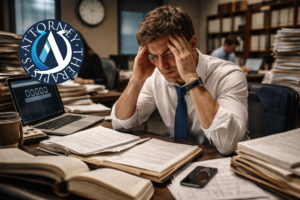The legal profession is often associated with high levels of stress, long hours, and significant emotional demands. Recent studies indicate that attorneys experience alcohol and substance abuse at rates far exceeding those of the general population. The combination of perfectionism, competitive work environments, and the pressure to perform can create a fertile ground for maladaptive coping mechanisms.
Underlying Causes
One of the primary contributors to substance abuse in the legal profession is the pervasive culture of stoicism and self-reliance. Attorneys are frequently discouraged from expressing vulnerability, which can lead to isolation and a reliance on alcohol or substances as a means of coping. Additionally, the high prevalence of secondary trauma experienced by litigators and other legal professionals can exacerbate the risk of developing unhealthy dependencies.
Recognizing Warning Signs
Identifying alcohol and substance abuse early is crucial for effective intervention. Warning signs may include a decline in professional performance, frequent absenteeism, strained relationships, and noticeable changes in physical appearance. Attorneys who exhibit signs of withdrawal, impaired judgment, or erratic behavior may benefit from a comprehensive assessment by a mental health professional.
Effective Interventions
Addressing alcohol and substance abuse requires a multifaceted approach. Individual therapy, peer support groups such as Lawyers Concerned for Lawyers (LCL), and structured treatment programs tailored to the unique challenges of attorneys can yield significant benefits. Law firms and professional organizations also play an essential role by fostering a culture of openness and providing resources for mental health and wellness.
Promoting a Culture of Wellness
Creating an environment that prioritizes mental health and wellness is imperative for reducing the stigma surrounding substance abuse in the legal profession. Educational initiatives, wellness programs, and ongoing dialogue can empower attorneys to seek help without fear of professional repercussions. By promoting a healthier work-life balance and supporting well-being, the legal community can address this critical issue effectively.
For more insights and resources tailored to attorneys, visit AttorneyTherapists.com.








